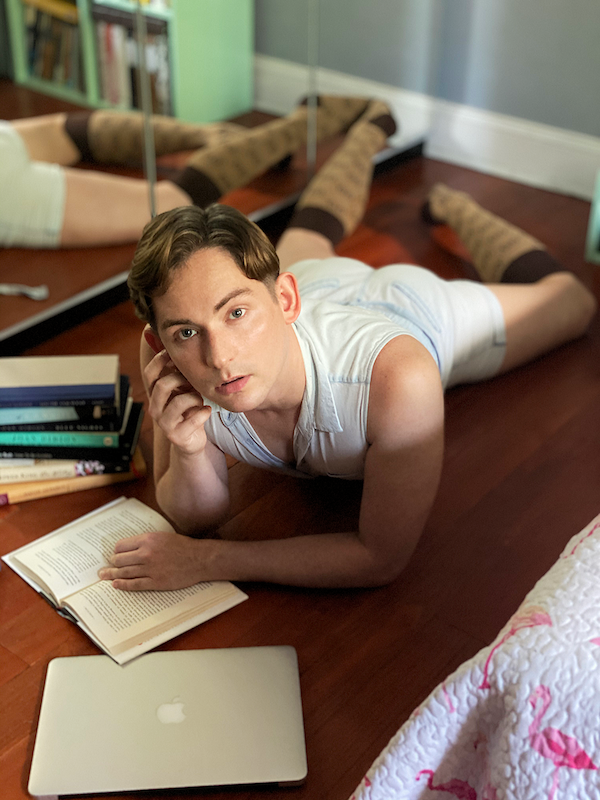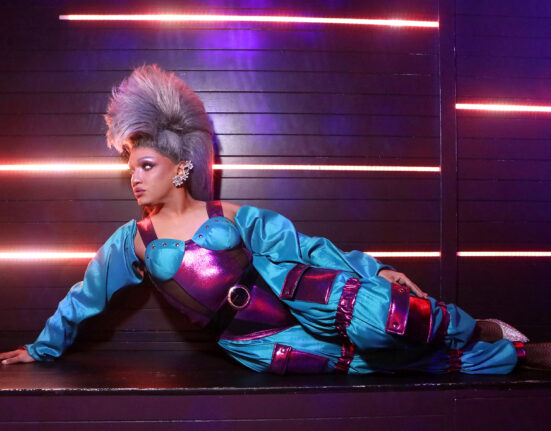
After being broken up for a week, my boyfriend and I decided to give things another try.
I’d asked him to stay—begged him, if we’re being honest—and I was ready to put in the work. So we signed up for couples therapy. I didn’t think I was acting “unsupportive” or “parental”–two things I’d been accused of—but I went into therapy with an open mind. Maybe I don’t come across the way I feel, I told myself.
While we waited for our first session, that openness became self-doubt. Maybe I’m not supportive, I told myself. Maybe I am parental. Maybe I’m mean. Maybe I’m a terrible boyfriend.
I tried to keep a brave face while I spiraled.
James moved off of the couch, where he’d been for the week, and back into the bedroom. There was a sense of comfort in that, of having him back, of sleeping at his side again, but something felt off. I couldn’t tell if he was having second thoughts about giving us a second chance or if I was just beating myself up for not seeing any of this coming.
All the while, I was back to work full time, working out of an office every Monday-Friday from 9 to 5. It was so weird that the world was coming back. People (mask-clad) were on the streets again, restaurants were open for sidewalk dining, Sheep Meadow was pseudo-socially-distanced packed.
But the only thing I was concerned about was saving my relationship.
I hadn’t been in therapy for eight years—not since I was in college. I felt like I didn’t need it. I’d started therapy when I was 14, and my stepdad was a therapist. I learned how therapists function, the game of therapy, how they lead you to make your own decisions and realizations—and I found ways to lead myself there. I found therapists suggesting things to me that I’d already implemented, so the sessions ran dry for content halfway through. So I stopped going.
Until now.
Our therapist, Simone, was able to point out communication issues right away. James raised his voice whenever he got upset. I checked out and stopped responding when I felt I wasn’t being listened to. Both of us talked over each other, hoping to get out whatever we wanted to say, but never actually listening to each other.
We learned communication skills. We learned to take “time outs” when we felt hot and needed a second to cool down. We caught ourselves interrupting, and did our best to curb it.
Over the next month, things got clearer, but they didn’t get better. We’d have the same fights week after week, come together for therapy on Mondays to solve it, and then have the fight all over again. He kept getting angry. I kept talking over him when I didn’t feel heard.
We were not in sync.
In one session, I told him that I didn’t know how to be there for him. “I picture myself in a big, open field,” I said. “Nothing but open grass all around me. And I’m trying to welcome you into my open field. But it seems like you feel like you’re backed into a corner a lot of the time—is that true?”
“Yes,” he said, quietly.
“Well,” I went on, “there are no corners in my field. So we are not in the same place. And I don’t know how to get you here.”
Neither did he.
Just shy of two months in therapy, we had yet another fight. “This is the same thing we just went over on Monday with Simone,” I said, frustrated. “I thought we worked this out. I thought you said you realized that what you were upset about actually had nothing to do with me.”
“Where’s my boyfriend?” he screamed. I’d never been screamed at before in my life. I felt myself shutting down.
“I’m right here,” I said, trying to stay level-headed. “Where are you?”
“I’m right here! This is me!”
“So, this—angry, screaming, mad at me for something that has nothing to do with me—that’s the real you? Not the kind, sweet boy I fell in love with?”
He started talking so fast that I couldn’t understand him.
“I can’t do this,” I said. “I’m leaving.”
I spent the night on a friend’s couch, anxiously rubbing my palms against the blue velvet seat. I barely slept that night and barely made it through work the next day.
When I returned home, James was waiting for me in the bedroom. “I’m still so upset at you,” he started in.
I couldn’t believe he was still mad. “You were unhinged last night,” I said.
You can imagine how the conversation continued.
We called Simone for an emergency session. James was angry. I was exasperated. We both cried.
By the end of our session, we’d made no decisions—but we’d both calmed down. The two of us talked for another hour. We talked about all of the things that weren’t working.
“So are we breaking up?” he asked me.
No, I wanted to say. No, you’re going to say you hear me. You’re going to say you understand where I’m coming from. You’re going to say you’re going to work harder on this. You’re going to say you’re going to fight for this.
But I couldn’t say those things. He needed to say them.
He didn’t.
Just before the first chill autumn day, James packed up his things and moved out. He left me a gift: the mint typewriter he brought with him from Florida. It matched our bedroom—my bedroom, I reminded myself—and I’d always wanted a typewriter of my own. For three years, it was displayed on the glass shelf of my vanity table.
“It does still work,” he told me, “but it needs a lot of work. A good cleaning, maybe some new keys, new ribbon. There’s a good place in Chelsea you can take it to.” It could work, but only if you really put in the work to make it work. How poetic.
Covid. Furlough. Quarantine. Protests. Police brutality. Settling into the new normal of the world. And all of that wrapped up in a breakup.
It had been anything but a simple summer.


Leave feedback about this
You must be logged in to post a comment.